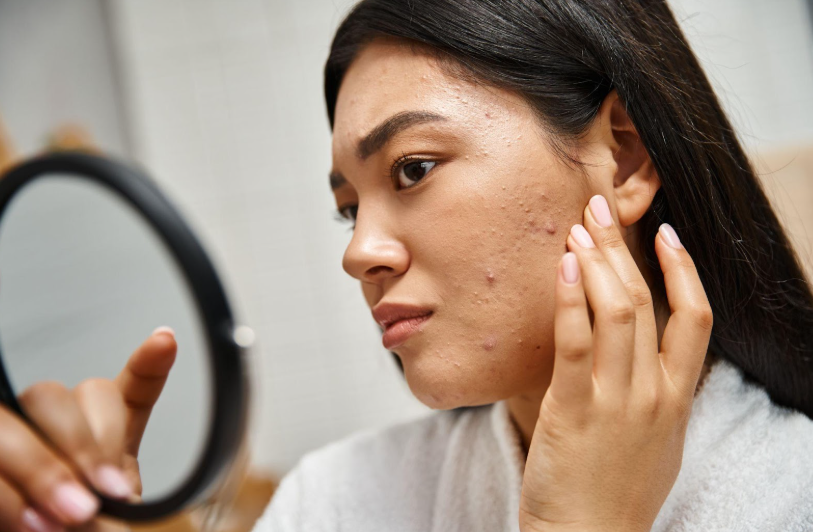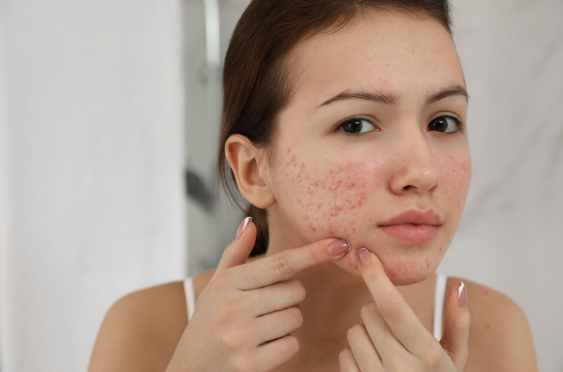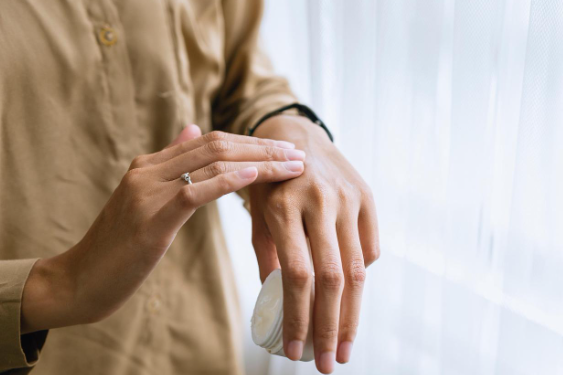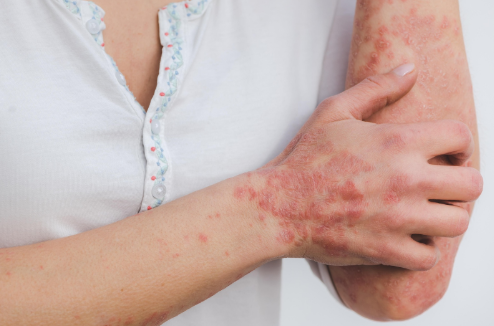Winter Skin Survival Guide: How to Combat Dryness, Itchiness, and Flare-Ups
Winter Skin Survival Guide: How to Combat Dryness, Itchiness, and Flare-Ups

When the chilly air rolls in, it’s not just your hands and feet that feel the effects—your skin does too. The colder months can strip away your skin’s natural moisture, leading to dryness, itchiness, flakiness, and even flare-ups of conditions like eczema, psoriasis, and rosacea.
At Pine Belt Dermatology, we understand how winter weather affects your skin and how frustrating it can be to deal with the discomfort that comes with it. The good news is that with a few smart skincare adjustments, you can protect your skin and keep it healthy, hydrated, and comfortable all season long.
Why Winter Wreaks Havoc on Your Skin
Winter weather creates the perfect storm for dry and irritated skin. Several environmental and lifestyle factors combine to rob your skin of its moisture and natural oils:
- Low humidity: Cold air holds less moisture than warm air, which means there’s less hydration available for your skin.
- Indoor heating: While it keeps you warm, artificial heat lowers indoor humidity even more, drying out the air—and your skin.
- Hot showers: Scalding water may feel comforting after being in the cold, but it strips your skin’s protective oils and worsens dryness.
- Wind and cold exposure: Cold winds and freezing temperatures can damage your skin barrier, making it harder for your skin to hold in moisture.
If you already have a skin condition like eczema or psoriasis, these factors can easily trigger flare-ups and increase irritation.
Common Winter Skin Problems
1. Dryness (Xerosis): Skin becomes rough, tight, and flaky, especially on the hands, legs, and face.
2. Itchiness: Dry skin often leads to itching, which can worsen irritation or even cause small cracks in the skin when scratched.
3. Flare-ups of chronic conditions: Eczema, psoriasis, and rosacea commonly worsen during winter because of temperature changes and lack of humidity.
4. Chapped lips: The delicate skin on your lips can crack and peel without proper moisture and protection.
5. Rough, cracked hands: Frequent handwashing and exposure to cold air leave hands dry and painful.
Your Winter Skin Survival Plan
Here’s what you can do to restore balance and protect your skin this season.
1. Change the Way You Bathe
- Keep showers short and warm—not hot. Aim for 10 minutes or less with lukewarm water. Hot water strips away your skin’s protective oils.
- Use gentle cleansers. Choose fragrance-free, mild soaps or body washes that are formulated for sensitive or dry skin.
- Pat, don’t rub. Gently pat your skin dry with a towel to avoid irritation.
- Moisturize immediately after bathing. Apply a rich, creamy moisturizer within 3 minutes of getting out of the shower to lock in hydration.
2. Upgrade Your Moisturizer
Lotions are great in summer, but they’re not strong enough for harsh winter conditions. Switch to thicker creams or ointments that provide a stronger barrier against moisture loss. Look for ingredients like:
- Ceramides: Help repair the skin barrier.
- Hyaluronic acid: Attracts and retains moisture.
- Glycerin: Draws water into the skin for deep hydration.
- Shea butter or petrolatum: Seals in moisture and protects against dryness.
Apply moisturizer at least twice a day, especially after washing your hands or bathing.
3. Use a Humidifier Indoors
Since indoor heating dries out the air, adding a humidifier can help restore moisture levels. Run it in your bedroom or main living area, particularly at night when your skin naturally loses more hydration.
4. Protect Your Skin from the Elements
- Bundle up. Wear gloves, scarves, and long sleeves to protect your skin from windburn and cold air.
- Use sunscreen—even in winter. UV rays are still strong enough to cause damage and premature aging, especially when reflected off snow.
- Avoid harsh fabrics. Wool can irritate sensitive skin, so wear a soft cotton layer underneath.
5. Hydrate from the Inside Out
When it’s cold, you might forget to drink enough water, but hydration is just as important in winter as it is in summer.
- Drink water throughout the day to help maintain moisture from within.
- Eat foods rich in omega-3 fatty acids (like salmon, walnuts, and flaxseeds) to support your skin’s barrier.
- Limit alcohol and caffeine, which can dehydrate your skin.
6. Be Gentle with Your Skin
Avoid over-exfoliating, which can worsen dryness and irritation. Instead, exfoliate gently once a week to remove dead skin cells, allowing your moisturizer to absorb more effectively. Use mild, non-abrasive scrubs or chemical exfoliants recommended by your dermatologist.
7. Manage Skin Conditions Proactively
If you have eczema, psoriasis, or rosacea, staying ahead of flare-ups is key.
- Use prescribed creams or medications as directed by your dermatologist.
- Stick to your regular skincare routine, even when your skin feels better.
- Avoid sudden temperature changes, which can trigger flare-ups.
- Keep track of your triggers—whether it’s certain foods, products, or weather conditions—so you can avoid them when possible.
At Pine Belt Dermatology, our dermatologists specialize in treating these conditions and can help you develop a plan to keep symptoms under control through the winter months.
When to See a Dermatologist
Sometimes, dry or itchy skin is more than just seasonal discomfort. You should schedule an appointment if you experience:
- Cracked or bleeding skin that doesn’t heal.
- Persistent itchiness that interferes with sleep or daily life.
- Painful or inflamed patches of skin.
- Rashes, bumps, or changes in skin color or texture.
Professional care can help identify underlying causes and provide stronger treatments—such as medicated creams, ointments, or light therapy—tailored to your needs.
Extra Tips for Healthy Winter Skin
- Apply hand cream after every wash.
- Use lip balm with SPF protection.
- Avoid fragranced products, which can irritate dry skin.
- Wash clothes with gentle, fragrance-free detergents.
- Continue using sunscreen daily, even on cloudy days.
Small changes in your daily habits can make a big difference in how your skin feels during the colder months.
Final Thoughts
Winter doesn’t have to mean itchy, dry, uncomfortable skin. With the right skincare routine, protection, and professional guidance, you can keep your skin healthy, hydrated, and glowing all season long.
At
Pine Belt Dermatology, we specialize in diagnosing and treating all types of skin concerns—from seasonal dryness to chronic conditions like eczema and psoriasis. If your skin needs a little extra care this winter,
contact Pine Belt Dermatology today to schedule an appointment.
Our expert team is here to help you achieve smooth, healthy, and radiant skin—no matter what the weather brings.










